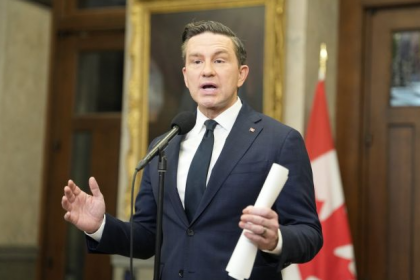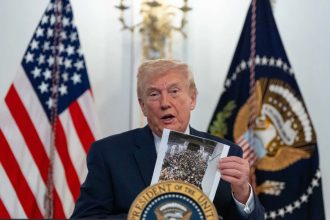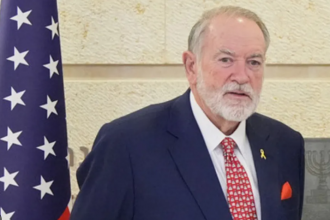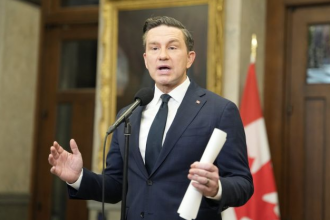Nov. 15, 2024; Colombo: President Anura Kumara Dissanayake’s National People’s Power (NPP) coalition scored a two-thirds majority in parliament by winning 159 seats at Thursday’s [14] parliamentary election.
The NPP secured a more than two-thirds majority in Parliament, winning 159 seats. 141 of the seats were elected, and 18 were through the National List. Samagi Jana Balawegaya (SJB), trailing behind, got 40 seats.
NPP- 159 seats
SJB- 40 seats
ITAK- 8 seats
New Democratic Front- 5 seats
SLPP- 3 seats
SLMC- 3 seats
Dissanayake, who was elected in September, needed a clear majority to deliver his promise to combat corruption and restore stability after the island’s worst-ever economic crisis.
The high cost of living was one of the key issues for many voters.
Dissanayake’s Janatha Vimukthi Peramuna (JVP) party, which now leads the NPP, had just three seats in the outgoing assembly.
The 55-year-old earlier told reporters that he believed this was “a crucial election that will mark a turning point in Sri Lanka”.
Sajith Premadasa, whom Dissanayake defeated in the presidential elections, led the opposition alliance. Shortly after he became president, Dissanayake called for snap elections to seek a fresh mandate to pursue his policies. He said there was “no point continuing with a parliament that is not in line with what the people want.”
Nearly two-thirds of former MPs, including prominent members of the former ruling Rajapaksa dynasty, had chosen not to run for re-election.
Out of the 225 seats in the parliament, 196 MPs were directly elected. The rest were nominated by parties based on the percentage of votes they received in proportional representation.
High inflation and food and fuel shortages precipitated a political crisis in 2022, which led to the ousting of President Gotabaya Rajapaksa. His successor, Ranil Wickremesinghe, managed to negotiate a bailout package worth $3bn with the International Monetary Fund, but many Sri Lankans continue to feel economic hardship.
The number of people living below the poverty line in Sri Lanka has risen to 25.9% in the past four years. The World Bank expects the economy to grow by only 2.2% in 2024.
During September’s election, disenchantment with established political players greatly helped the left-leaning Dissanayake. His party has traditionally backed strong state intervention and lower taxes and campaigned for leftist economic policies.
The coalition will now be under massive pressure to perform and live up to their campaign promises. Dissanayake has promised to repay the country’s debt, reform its political culture, and punish members of past administrations for corruption.
Sri Lanka’s economic situation remains precarious, and the main focus is still on providing essential goods and services. The new government’s real challenge will be how the country progresses from this point.







